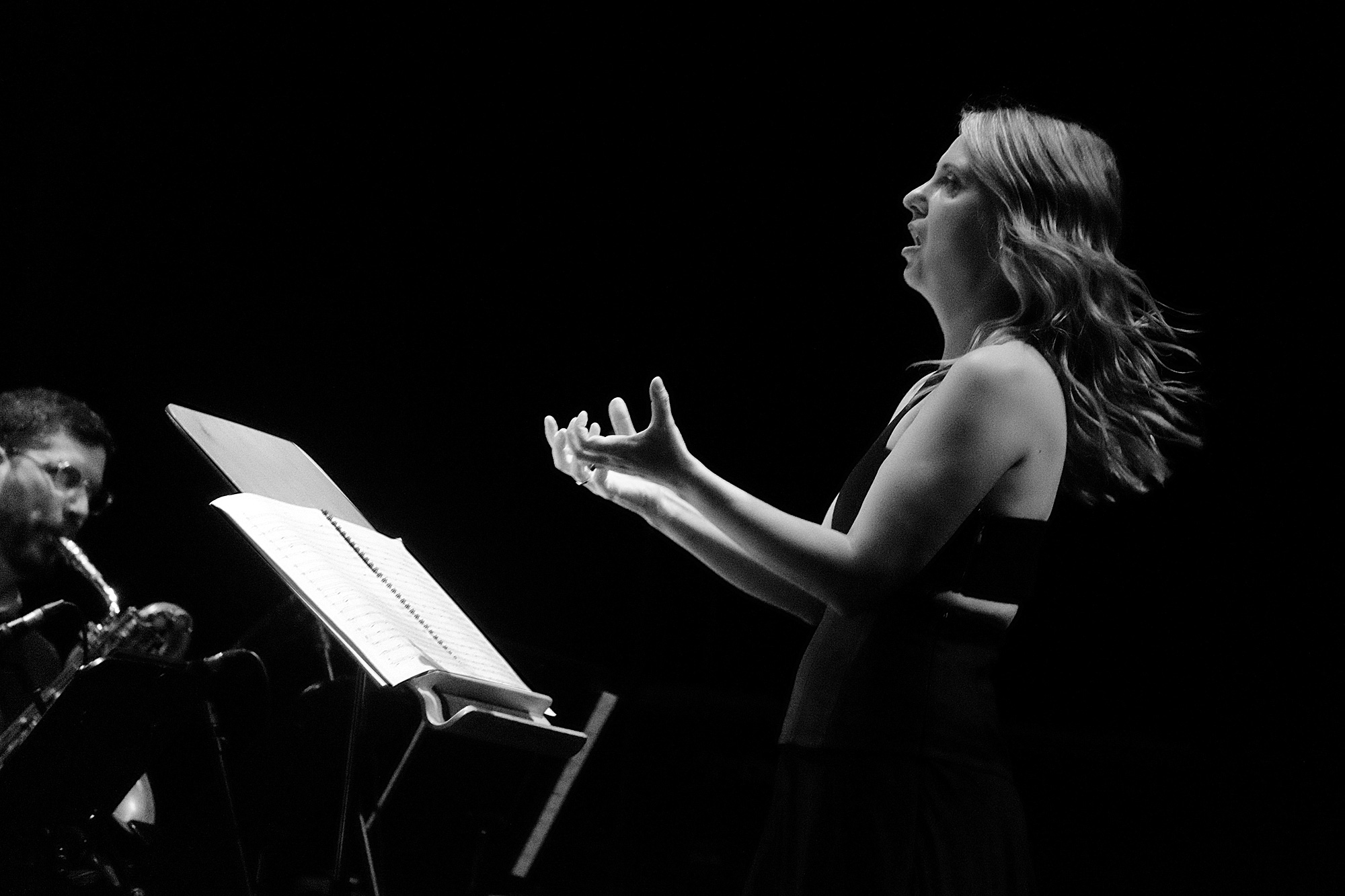
REVIEW
Melbourne International Jazz Festival, 20 – 29 October 2023
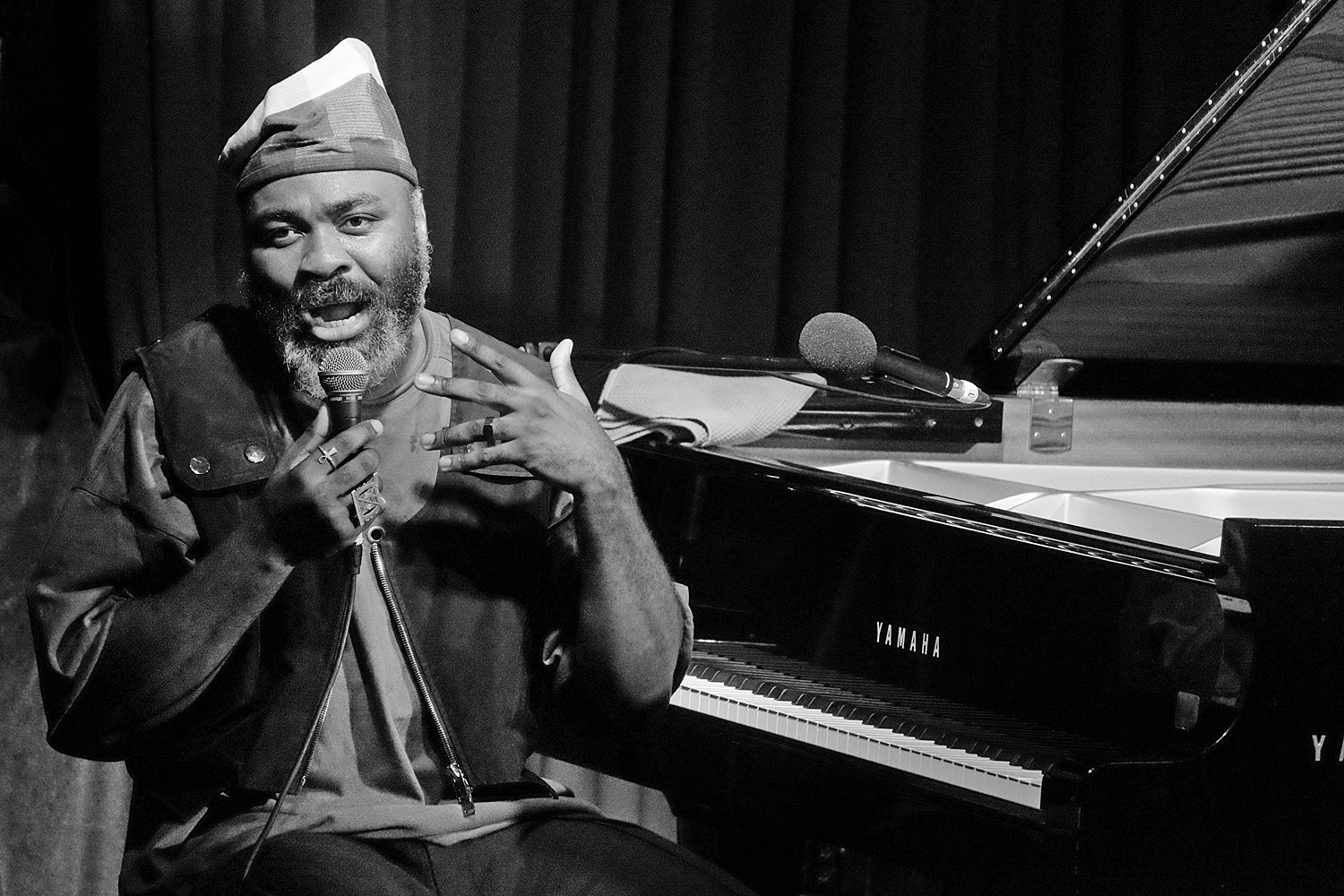
To pianist Nduduzo Makhathini, the telling of a story can liberate and heal. The Blue Note artist from South Africa told his audience at The Jazzlab on the final night of the festival that performances are moments of emptying, an opportunity for us to dissolve for a second and to think about ourselves in the collective.
During the 10 days of festival music in Melbourne, such terrible inhumanity has been on display in the world that to dissolve for a short time and be in a collective space has enormous appeal.
A concert – whether it is on the street, an outdoor space such as the Sidney Myer Music Bowl or Fed Square, in a large auditorium such as Hamer Hall or Melbourne Recital Centre, amid the smoke and light show at The Forum or in a smaller venue such as Chapel Off Chapel, The Substation or The Jazzlab – can engage us and lift spirits as we revel in the skill and artistry of the musicians. There were many of such outings during MIJF 2023.
But performances can also disturb, shock or convey a message about what inspired the composers, as well as tap into the wellsprings of ancient cultures or plumb the depths of grief.
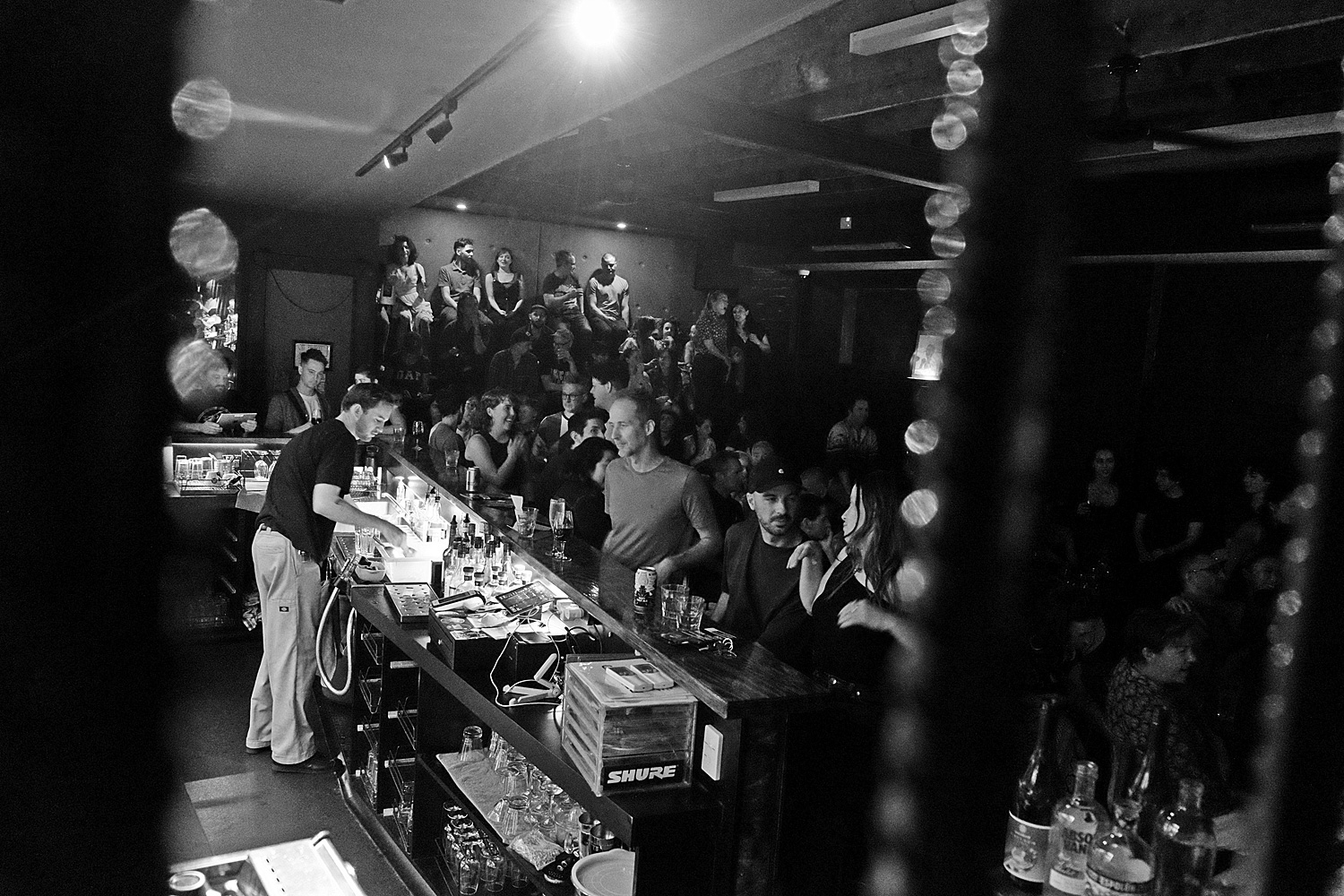
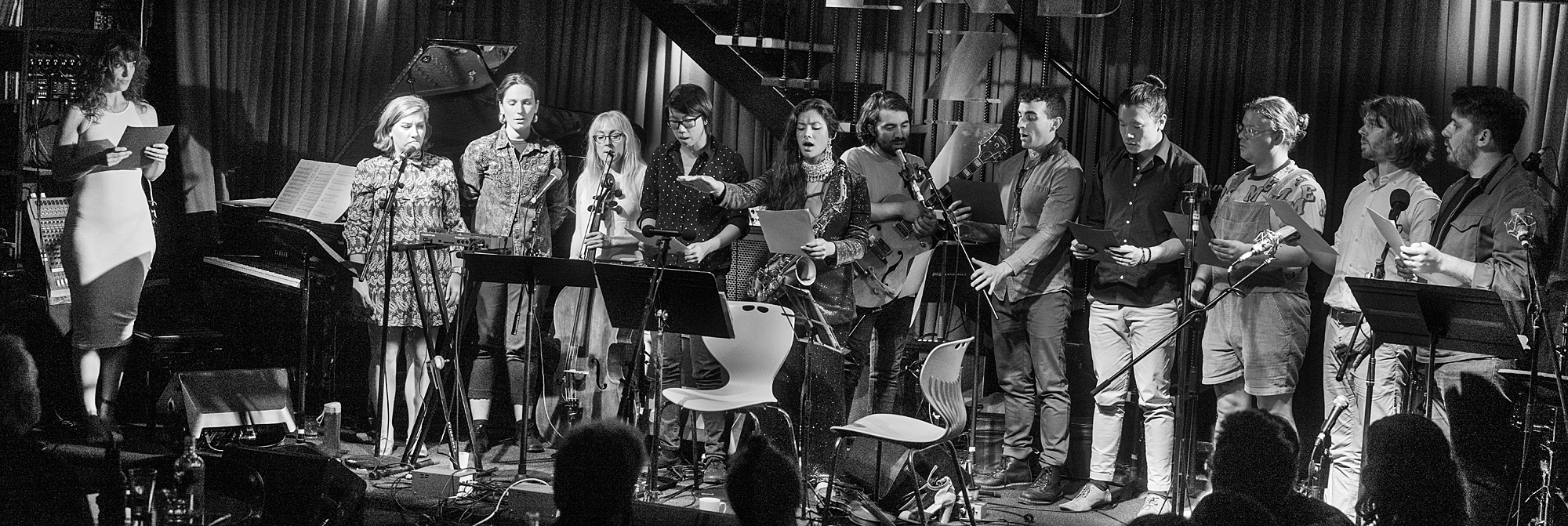


On opening night, saxophonist Cheryl Durongpisitkul’s commissioned work ‘I Still Miss You’ was “a deeply personal and cathartic exploration of trauma, loss and grief” dedicated to her parents, Kit and Tina. This performance took the important Take Note festival program, which champions gender diversity, to a new level. Her 12-piece ensemble so effectively conveyed the pain of illness and loss that its impact lingers still.
Faced with a technical recording hitch requiring one piece in the suite to be repeated, Durongpisitkul openly let the audience know she had been channeling grief and then professionally proceeded to deliver that emotion and affect again. There was too much in this work to capture in a few words, but along with passages seeming to convey menace and anger were interludes imparting a sense of fragility, vulnerability and, ultimately, recovery.
In a fitting follow-up, at the final jam session late on the festival’s closing night – the last one to be hosted by The Rookies after five years of this joyous band doing it so well – Durongpisitkul performed a blistering solo that took no prisoners.




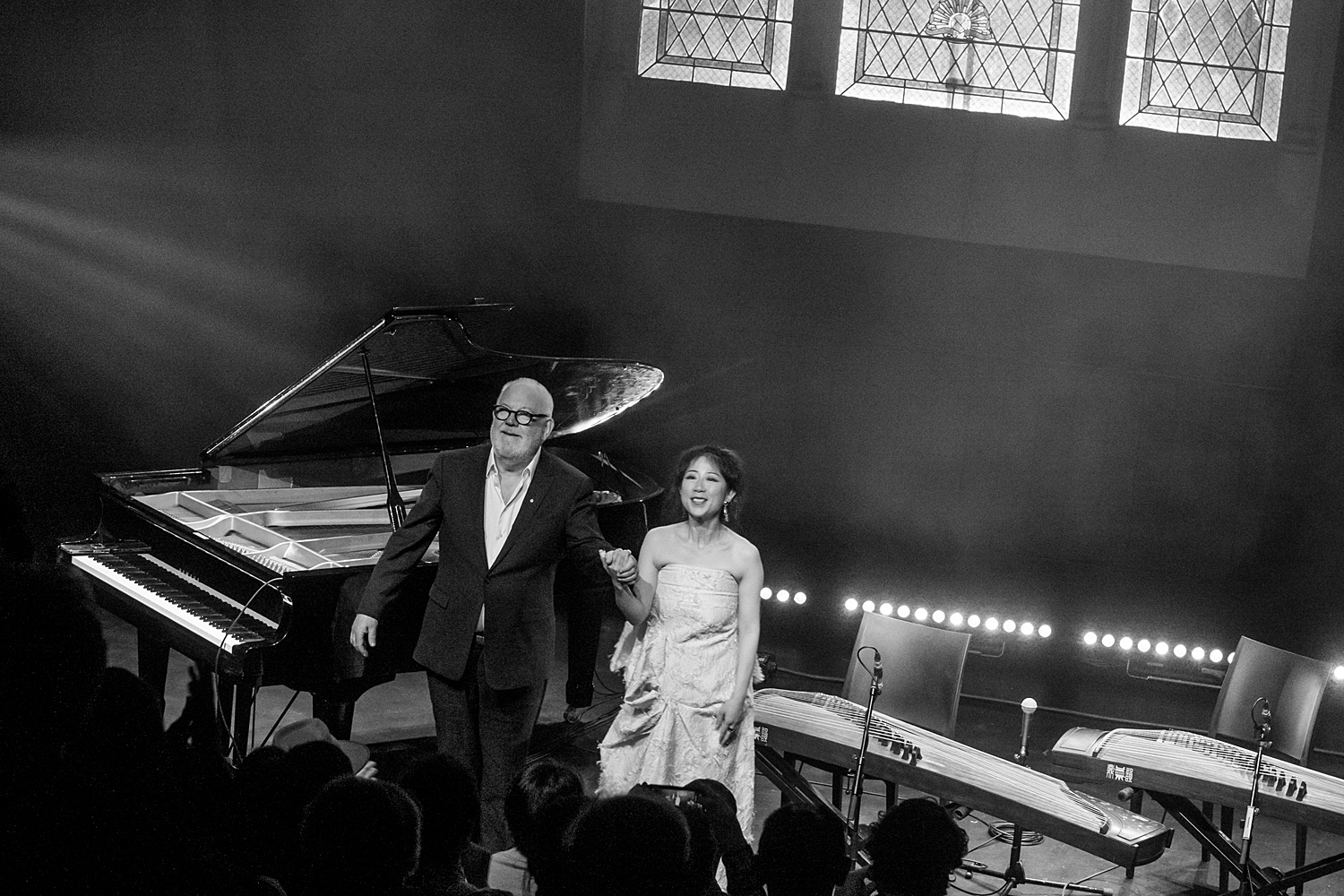
On Saturday 21 October at Chapel Off Chapel, Mindy Meng Wang and Paul Grabowsky AO, who met at the renowned Bennetts Lane venue, brought their very different instruments – Guzheng (ancient Chinese harp) and piano – together with their dissimilar musical backgrounds to create a wonderful exchange that tapped into deep memories. As Grabowsky put it, “It’s in our DNA and it comes out when we make things.”
What a wondrous meshing of cultures, instrumentation and improvisation this was, an ever-changing feast of the impetuous, abstract, fragile and storm-like intensity that was jangling and entangling, the harp punctuating by plucking and the piano bringing flow, drive and vigour. This encounter took musicians and audience members to deep places.
On the following night at the same venue it was an absolute treat to hear members of the SFJAZZ Collective in a quintet led by drummer Kendrick Scott play mostly tunes from his album Corridors, commissioned by The Jazz Gallery’s 2020 Artist Fellowship Series and written in response to the solitude and isolation enforced by the Covid-19 pandemic. Kendrick, who spoke of pacing the long, creaking corridors of his apartment, seemed to revel in the artistry at his disposal in this consummate ensemble.
Warren Wolf had the space to dazzle with his lightning-fast work on vibes, especially in the Bobby Hutcherson piece Isn’t This My Sound Around Me, while Chris Potter on tenor saxophone was outstanding, deftly painting sound pictures in his tune Ask Me Why and the beautiful Scott ballad A Voice Through the Door. Add in Matt Brewer on bass and the effortless fluidity of Mike Rodriguez on trumpet and surely nobody in the Chapel Off Chapel audience could not have been entranced.
The experience of being unable to return home during the pandemic inspired Dutch saxophonist Marike van Dijk to compose her suite Stranded, commissioned by the Netherlands’ North Sea Jazz Festival. Her quintet outing at The Jazzlab on Wednesday 25 October demonstrated her fascination with patterns and repeated motifs, ably brought to life by Hugh Stuckey guitar, Brett Williams piano and Nord, Sam Anning bass and Ben Vanderwal drums. This was intricate and really interesting music, van Dijk often dancing a little as she listened to, and clearly appreciated, the rhythm section at work.
In the first concert of a double bill at Chapel Off Chapel on Tuesday 24 October, Sydney’s Tom Avgenicos (trumpet, electronics) brought his quartet Delay 45 together with a string quartet for ‘Ghosts Between Streams’ – a lament inspired by his walks along Stringybark Creek near his home between 2019 and 2021, and feelings of solastalgia (distress at the environmental change threatened by encroaching urbanisation).
Originally performed with dancers, this brooding, often sombre work called for concentration, its drawn-out drama broken by periods of agitation and resplendent horn soliloquies. Excellent and integral contributions on strings included solos by Emily Beauchamp on violin and Anna Pukorny on cello. While the seamless suite undoubtedly provided a moving musical experience, its genesis story was left hidden to audience members in the absence of any explanatory text or spoken introduction.
At The Substation in Newport on Saturday 28 October, members of Hand to Earth, augmented by Polish violinist Amalia Umeda, performed ‘The Crow’, a joint commission by MIJF and Jazztopad Festival in Poland, tracing the songline of the crow (waak waak) in Arnhem Land. A preview of material from Mokuy, an album due for release on 24 November, this work seemed doubly important in the wake of the recent no vote in the national referendum, given key ensemble members Daniel and David Wilfred’s ability to share insights from Manikay songlines.
Daniel Wilfred is a man of few words, but his messages were engaging and clear: “Don’t fight. Sit and listen or come dance with us”, “Hope you liked the dingo one” and “Go home with the good spirit today”.
Amid the often quite loud sounds of voice, electronics and percussion from Peter Knight and wonderfully bespoke instruments played by Aviva Endean, Umeda’s violin was at times overtaken. But in the most accessible piece, David Wilfred and Sunny Kim (vocals and percussion) danced a songline about Guguk, a bird that flies everywhere, finding beautiful country, staying and later moving on.
Again, I believe brief explanatory text would have aided audience understanding, although others may say the music should tell the story unaccompanied.
In the same venue on the previous evening, two men who had only just met joined in an inspired pairing – South Africa’s Nduduzo Makhathini (piano, vocals) and Kalkadunga man William Barton (didjeridoo, vocals). Drawing on deep cultural roots, these men not only provided a sonic and rhythmic feast with their respective instruments and their expressive voices, in language – Makhathini’s light as air, Barton’s as if drawn from deep in the earth – but also articulated their heartfelt yearnings.
Makhathini spoke of the restoration of archives, of Indigenous people not being part of the conversation, of languages going into extinction and the need for music to become an other-worldly location where violence does not apply. Barton spoke of ceremony around campfire, the DNA of his people, the need to dance upon and listen to the earth, and the need for allies to share in the journey of legacy. “Please come and stand by us,” was his call.
At concert’s end, after a fun lesson involving the audience in how animal sounds are conjured from the didjeridoo, Barton invited his mother, opera singer Delmae Barton, to the stage for a compelling finale. In what felt like a revival meeting in which many would want to come forward, she echoed her son’s call, pleading, “Come walk with us” and “Feel the spirit – the spirit that is within all of us”. The recent no vote seemed far away.
More reflections – cosmological, epistemological and ontological – abounded on the festival’s closing night at The Jazzlab when Makhathini joined Zwelakhe-Duma Bell le Pere on double bass and Francisco Mela on drums for the last of four trio outings.
Makhathini’s work at the piano was a lot more ebullient than in his duo with Barton, integrating beautifully with the coiled-spring energy of Mela, who played in McCoy Tyner’s trio for 10 years, and with the responsiveness of Bell le Pere on bow and plucked strings. The understanding between these three was tangible as vigorous bursts, space and quieter passages made for compulsive listening.
In an outing that had both improvised music and messages to pass on, expatriate trombonist and composer Shannon Barnett took over gym spaces at the Melbourne City Baths in two sessions on Tuesday 24 October to stage ‘Dead Weight’.
Patrons were divided into groups to view four pieces in this innovative project: End of the Bargain for three double basses, cello and rowing machine, Fahrrad Frei (Free for Bikes) for saxophones and exercise bikes, Skin Deep for three singers and female change room, and Deep Work for power funk band and fitness instructor.
It was a different, utterly engrossing and often humorous concept, but Skin Deep – the piece that packed the most punch – involved a visit to the change room where we were invited to discover pink cards inside the lockers. As we read the text on these, stony-faced vocalists Louisa Rankin, Mim Crellin and Gian Slater delivered a capella lines such as “Would you be smiling if every move you make was judged by a double standard?” and “My body’s not your property”.
Text on pink cards in the lockers included these glimpses of harsh realities:
“Sixty-five per cent of Australian young women and girls have been exposed to online violence. Half of those harassed have suffered mental and emotional distress as a result. Source: Plan International.”
“Only an idiot would sleep with students, and I am not an idiot. I would not do that. But after they graduate, it’s open season.” – Saxophonist Greg Osby (Interview with The Boston Globe).”
“Seventy-two per cent of Australian women working in the contemporary music industry have experienced workplace discrimination. Source: Raising Their Voice, 2022”

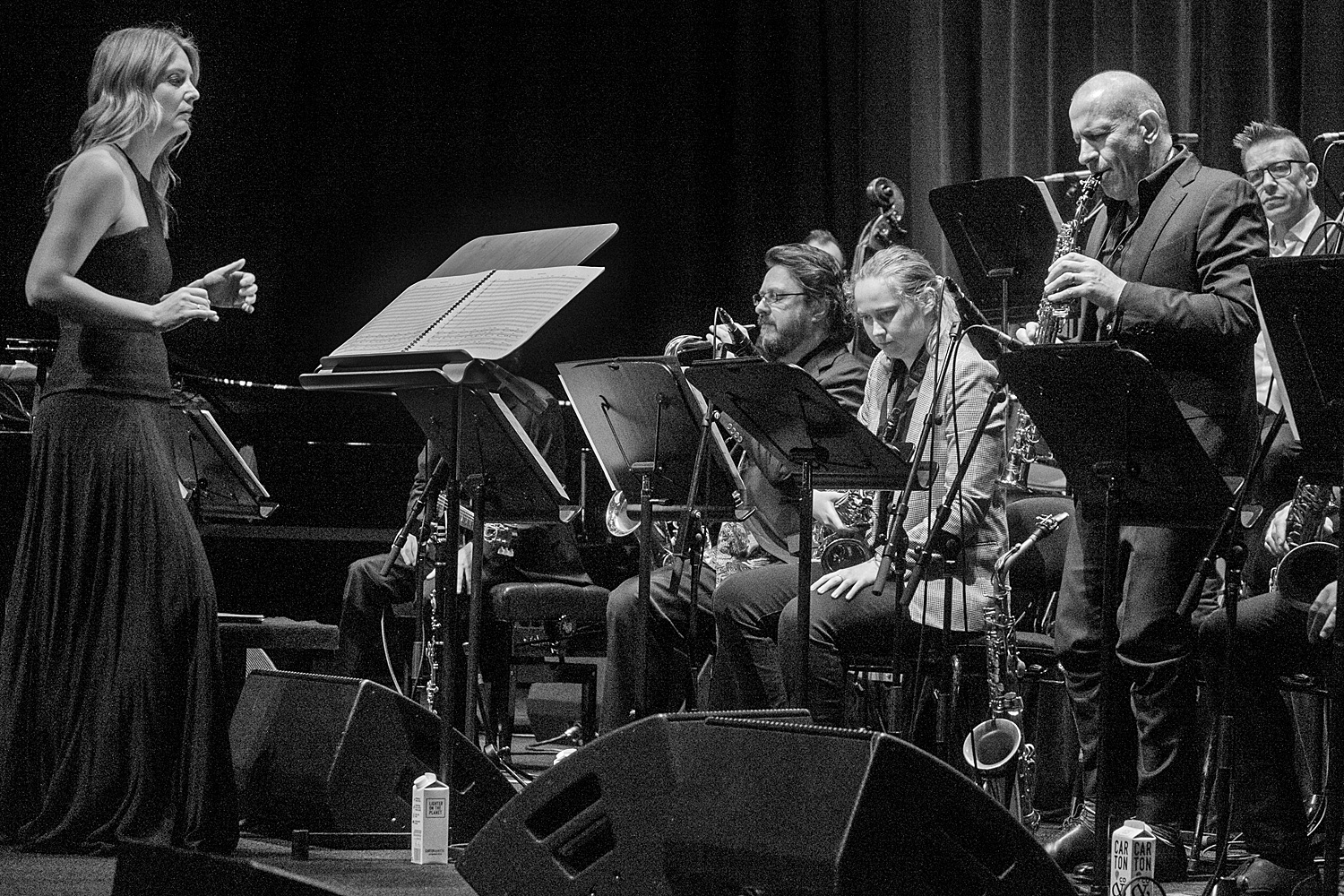
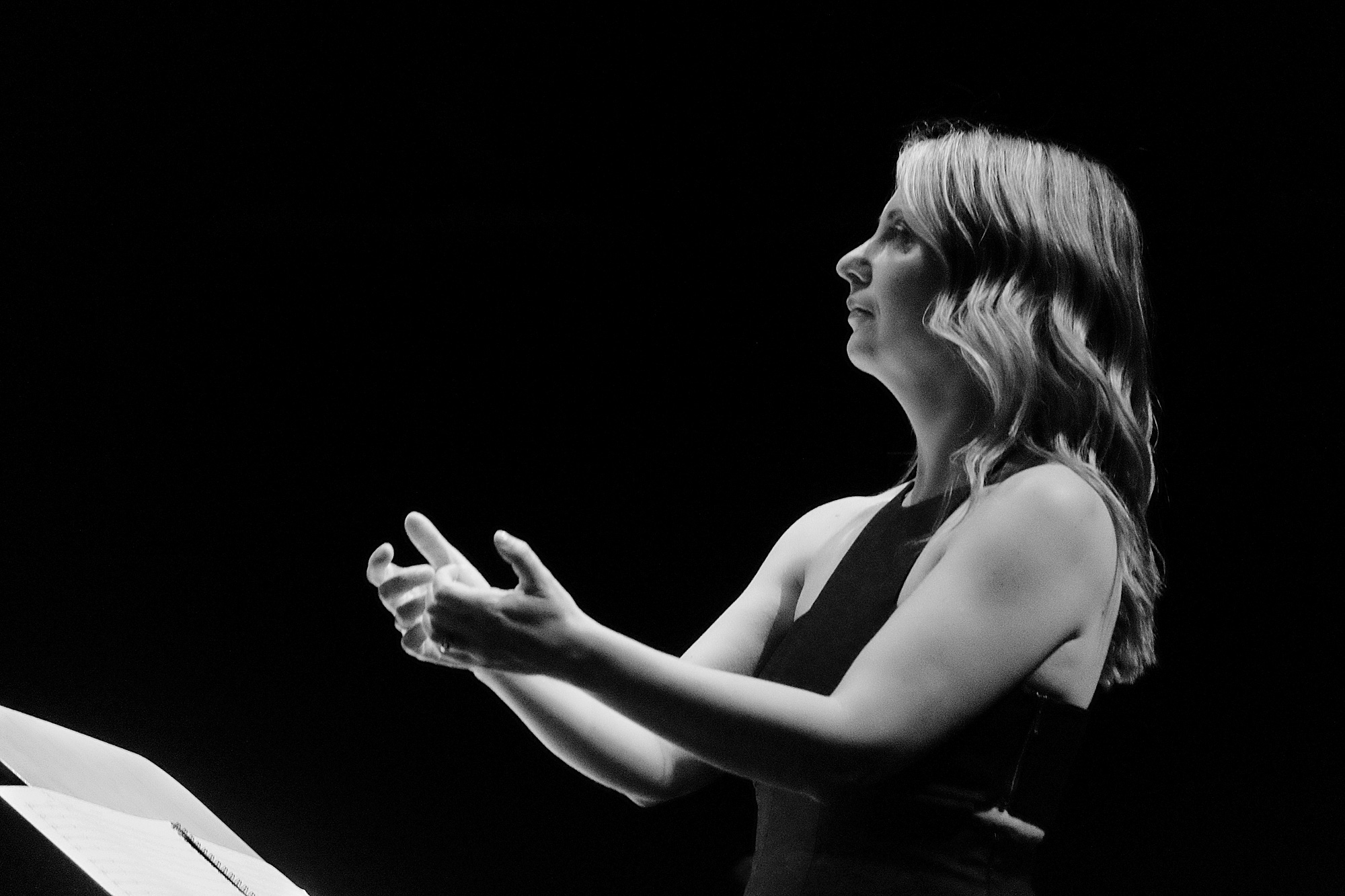




The evening of Thursday 26 October at the Melbourne Recital Centre, opening with a quartet led by Matthew Sheens on piano, was definitely a festival highlight.
With no embedded storyline apart from the sheer joy of creating fine music, conductor Vanessa Perica wowed the audience with the premiere performance of compositions from her second album, The Eye is the First Circle. With verve and energy, Perica led her 18-strong orchestra of leading Australian artists in an absolutely exhilarating concert.
Perica made excellent use of the musicians under her baton, with superb solos that could only be faulted for being too brief. This was exciting music that culminated in Still We Rise – a piece originally commissioned by Monash University – before the ensemble closed with Spaccanopoli from the acclaimed debut album, Love is a Temporary Madness.
In the final outing of four concerts at The Jazzlab, on Sunday 22 October Canadian trumpeter Ingrid Jensen joined Andrea Keller piano, Stephen Magnusson guitar, Sam Anning bass and Felix Bloxsom drums in a demonstration of how to finesse the sounds emanating from a horn using pedals, mutes and tapping on the mouthpiece. A highlight was a piece from her At Sea suite.
Finally mention must be made of Conjuress, the octet that opened for Cheryl Durongpisitkul’s Take Note suite on 20 October. These players displayed the quality musicianship to be expected from a group under the direction of Andrea Keller, making exceptionally creative use of three vocalists Anja Duiker, Ava McDermott and Billie Raffety. The wild applause that greeted their work in Life That Lingers (Keller) was entirely appropriate.
This eclectic festival – including many concerts not mentioned here – demonstrated the power of music to, at least for a time and in the moment, transcend the ills of the world and our individual experiences, glimpsing a collective consciousness.
Roger Mitchell
More images will be posted later, and on the Ausjazz Facebook page.

























